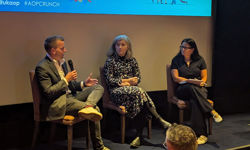
The research, called ‘The Diversity Factor’ aims to provide advertisers with insights enabling them to understand and engage more effectively with ethnic minority, LGBTQIA+, disabled and working-class communities across Great Britain, says the company.
The large-scale generational and community focused project, they added, examined individuals’ identities, global concerns, and thoughts on brands and advertising.
‘The Diversity Factor’ follows Mail Metro Media’s 2020 research project, ‘The Generation Factor’ which examined what unites and divides every generation, and is being completed in partnership with The Diversity Standards Collective.
The Diversity Standards Collective provides cultural insights, guidance and validation from diverse people around the globe. Talking about ‘The Diversity Factor’ research, DSC CEO and co-founder, Rich Miles said: “The DSC was created to make sure any company can gain confidence in their understanding of diverse communities simply by connecting directly to them in an easy, safe and respectful way. We were really proud to have worked with Mail Metro Media on this set of truly insightful Community Councils, unearthing previously ignored motivations and behaviours of the core minority communities that are part of our society.”
Mail Metro Media’s chief brand strategy officer, Ryan Uhl said: “Mail Metro Media is passionate about understanding people, with newsbrands that speak to many diverse audiences. We always strive to put consumer insight at the heart of our campaign ideas. This project has been a very important step to improving our knowledge of representation and speak to real communities in more depth than ever before. The Diversity Factor research is now the foundation of our planning and ideation process, and marks the beginning of our journey into creating more authentic work.”
Mail Metro Media says that ‘The Diversity Factor’ spoke to 2,462 people, split by generations, ethnic minorities, LGBTQIA+ and Disability. They also carried out in-depth conversations with six “DSC Community Councils” covering the intersectional views of people from Black, East Asian, South Asian, and Working-Class communities.












